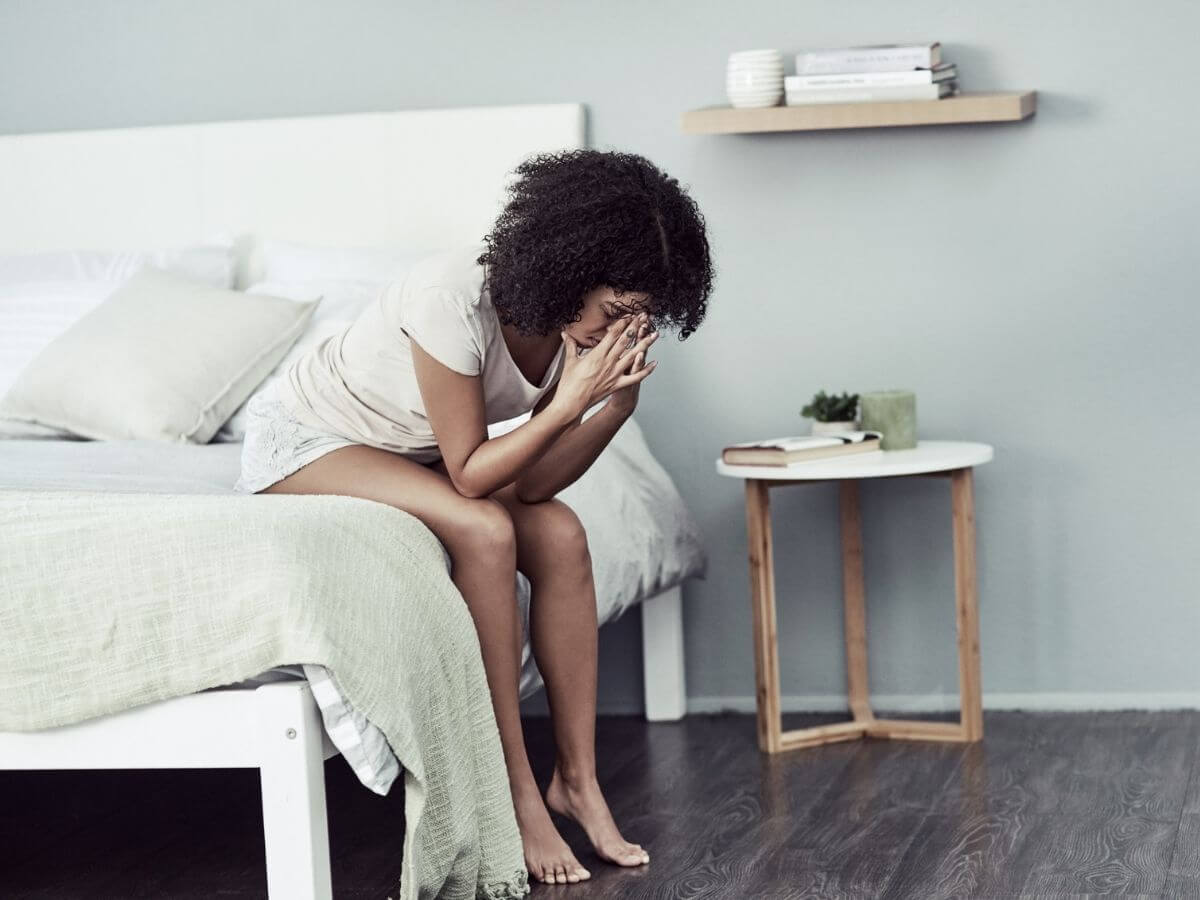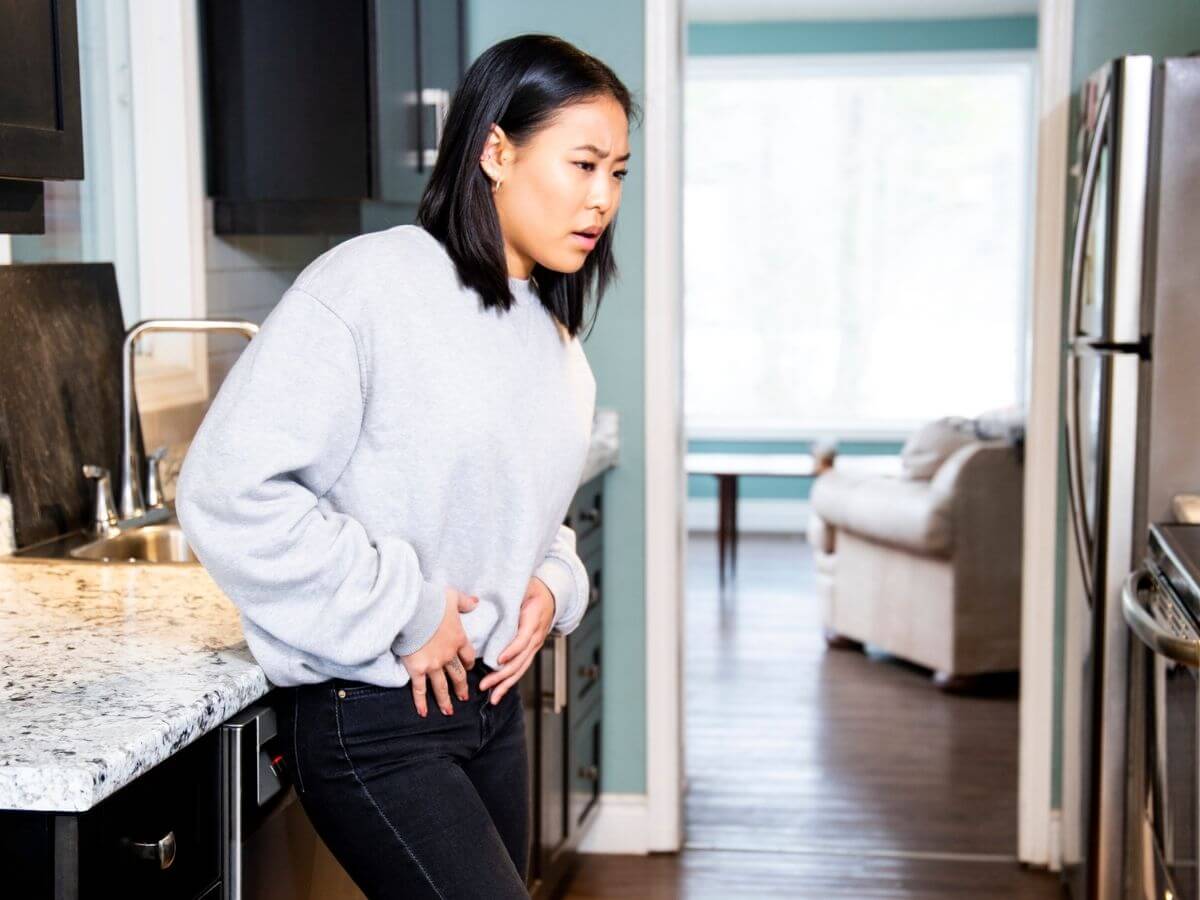Tips to Help Relieve PMS Symptoms

Premenstrual syndrome (PMS) affects approximately 75% of people who menstruate. Its symptoms include:
- Mood swings
- Fatigue
- Irritability
- Depression
- Crying spells
- Changes in libido
- Insomnia
- Inability to concentrate
- Food cravings
- Headache
- Cramping
- Bloating
- Fluid retention and weight gain
- Breast tenderness
- Aches and pains
- Constipation or diarrhea
- Acne
- Alcohol intolerance
The symptoms tend to repeat with each menstrual cycle but may vary in intensity from one cycle to the next. Fortunately, there are several actions you can take to decrease or prevent PMS symptoms.
Never Miss a Beat
Get the health and wellness news that matters most delivered straight to your inbox. Subscribe to our free email newsletter to stay up-to-date on the latest news and more.
How to Reduce PMS Symptoms
Both lifestyle changes and medical treatment can help you cope with PMS symptoms. If you’re wondering how to reduce PMS symptoms, a good place to start is to make these lifestyle changes:
- Get regular exercise. Try to get at least 30 minutes of physical activity on most days of the week. This might include taking brisk walks, swimming, riding a bike, or other aerobic activities.
- Adjust your diet. Get plenty of fruits, vegetables, and whole grains, and limit your salt intake to reduce fluid retention and bloating. You should also eat smaller meals more frequently to reduce bloating. In addition, it’s important to get an adequate amount of calcium, so eating dairy products or taking a calcium supplement can be helpful. You should also avoid caffeine and alcohol.
- Manage your stress effectively. Use techniques and practices like meditation, deep breathing, progressive muscle relaxation, and yoga to lower your stress level. You should also get plenty of restful sleep.
If these lifestyle changes and remedies don’t provide sufficient relief, your doctor can recommend and/or prescribe medications to address many of your PMS symptoms. This includes:
- Nonsteroidal anti-inflammatory drugs (NSAIDs). Over-the-counter medications like naproxen sodium (Aleve) and ibuprofen (Motrin IB, Advil, etc.) can help reduce cramping and breast discomfort.
- Hormonal contraceptives. These prescription medications, which stop ovulation, may provide relief from PMS symptoms.
- Antidepressants. These medications, which are often prescribed for daily use, can be prescribed for use only in the two weeks before menstruation starts if appropriate.
- Diuretics. Also referred to as water pills, diuretics cause your body to eliminate excess fluid. This can help minimize swelling, bloating, and weight gain.
Help for Minimizing PMS Symptoms
From PMS emotional symptoms to physical changes, you don’t have to “grin and bear it” with each menstrual cycle.
You can use PMS remedies and lifestyle changes for coping with PMS symptoms. And you can also talk with your doctor about what helps PMS symptoms, from foods that help reduce PMS symptoms to medications that can minimize or prevent them.
Learn About Women’s Services at Baptist Health
Our experts understand the health challenges women face and the best ways to address them. Learn about the women’s services we offer today and find a women’s health provider in our online directory.
Next Steps and Useful Resources
Find a Provider
Premenstrual Dysphoric Disorder (PMDD) Explained
Changes in Menstrual Cycle in 20s, 30s & 40s
4 Early Warning Signs of Ovarian Cancer



